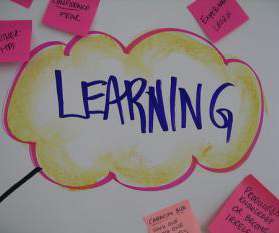Reflections on Twitter and social networking
Clark Quinn
OCTOBER 2, 2008
I’ve been using Twitter for a number of weeks now, and that, combined with several recent social networking activities prompted this reflection. Many of the people to track are sharing their interesting discoveries.  It’s also a way to track what’s hot and new. The Work Literacy one on Learning 2.0























Let's personalize your content